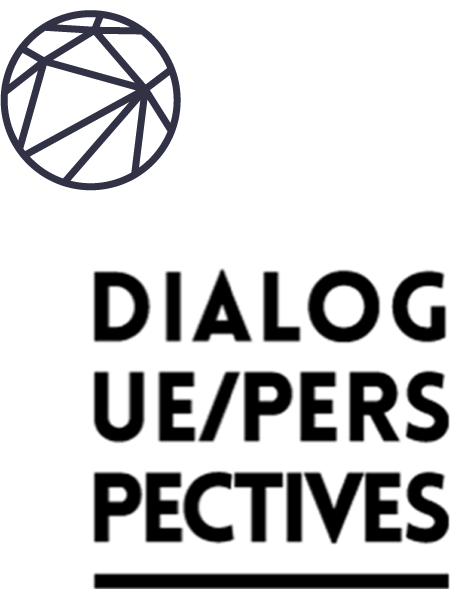Retrospective: Fall seminar 2019

A wonderful first seminar of the program year is now behind us. It was a successful start to a very special year, as this year marks the first time that, in addition to the 40 scholarship holders from all of the German scholarship funds for gifted young academics, we were able to welcome 12 European students and doctoral candidates from Poland, Hungary, the UK, Sweden, and Luxembourg as participants in DialoguePerspectives. In this way, we are able to incorporate a variety of new topic areas and profit from the diverse experiences of the participants.
Over the course of five intensive days of work, discussion, and shared experiences of religious practice, the participants have already grown close to each other in a very special way: Connections, alliances, and friendships have emerged that form the foundation of a unique European network of students and doctoral candidates of diverse religious and worldview backgrounds and academic disciplines, a foundation that will be expanded and built upon over the course of the program year.
How important this foundation is to the goals of our program was made clear by a participant in a blog entry that she wrote following the seminar: What happened to me there feels like a miracle. I was finally able to experience something that I had only speculated about in my life up to that point – religiosity doesn’t have to divide us, but can actually connect us, so long as we pay careful attention to our difference and allow ourselves to be awed, not frightened, by the spirituality of another person. The way this changes you may not be the smallest challenge to your own life, but it also doesn’t mean that your own identity is damaged in the process. The opposite is the case: together, we can make each other stronger!
In four working groups, the participants grapple with various aspects of the seminar topic “Religion and Identity”: with socio-political dimensions of the concept of recognition in the context of identity politics, with the phenomena of multi-religious identity and religious ambiguity in European societies, with the construction of subjects in the tension between identity politics and social philosophy and with (post-)migrant identity discourses.
In the working groups, the way the participants’ work together has been enriched with even more new perspectives via the European expansion of our program became impressively clear. This could be seen in the discussions on the co-existence of religious communities in different European societies and the resulting socio-political, but also personal, implications.
The shared religious practice during the seminar represented a further focus. A Kabbalat Shabbat celebration, the Muslim Friday prayers, and an ecumenical Christian prayer service in the village church at Gollwitz were the high points of the religious program prepared and carried out by the participants under the guidance of the religious counselors. The visibility of inter-religious diversity was a constant priority in the creation of the program points, whether by accounting for liberal and orthodox traditions in Jewish practice, considering differing interpretations of texts within the Islamic religion, or connecting Catholic and various Protestant liturgies. At the start of every day, the group began with a shared religious morning input from the participants themselves: with a meditative exercise in mindfulness, an artistic examination of self and external perceptions, and a reflection on the meaning of sleep and dreams in Jewish, Muslim, and Christian traditions. In a discussion with the title “Queering Religion”, the group also addressed queer concepts and positions of religious traditions and queer belonging the respective communities.
In various reflection formats, the participants grappled with fluid constructions of identity, with self-perception and external ascription, and with their own positions as members of various religious, cultural, and social groups and the privileges and/or experiences of discrimination resulting from them.
Discussions and debates about societal challenges in different European societies, on the position of minorities, political developments in Europe, but also about theological questions relating to religious practice, differing interpretations of religious texts, and questions of equality from different religious and non-religious perspectives beyond the official program colored the evenings and nights in Gollwitz.
While some participants are already active in their communities, universities, and organizations in Europe, and were able to highlight and expand their networks through their participation in the program, for others it was their first opportunity to get to know people of different religions and worldviews, to learn from the encounters and exchange with each other, and to gain new perspectives.
Seminar leader Prof. Dr. Frederek Musall summarized the numerous moments that would not have happened without the unique space that DialoguePerspectives creates for encounters and collaboration in this way, emphasizing:
“DialoguePerspectives is not an interfaith dialogue in the classical sense! For us, it is much more about making the multi-perspectival nature of religious and worldview positions and attitudes present in our European society visible, understandable, and communicable. Not simply to show that, which is already there, but because the diversity of perspectives present when coming together makes it possible for us to realize who we can and want to be as parts of European society! DialoguePerspectives is the courage to not only intellectually mull over and sketch out the open society, but also to actively and creatively shape it.”
We came to the end of the first seminar of the new program year full of impressions and memories of the intensity of the encounter, the collaboration, and the shared religious practice. We have already gathered a diverse range of ideas and plans for the spring seminar taking place in Luxembourg in March 2020, and the participants’ happy anticipation of coming together again to share and exchange is immense. We extend our sincere thanks to all participants, working group leaders, and religious counselors!
